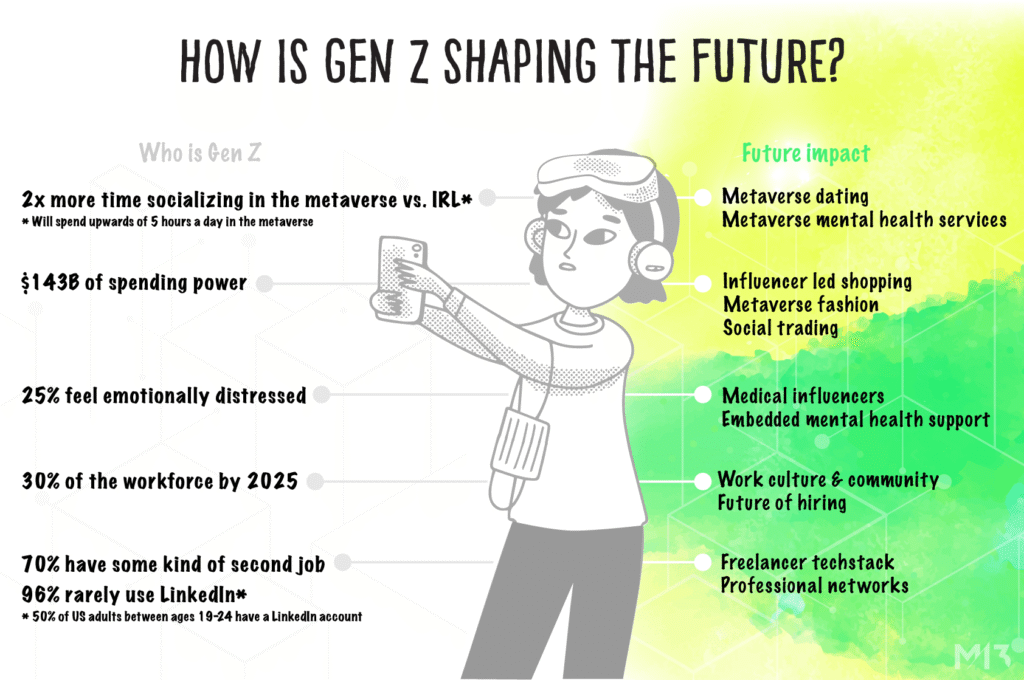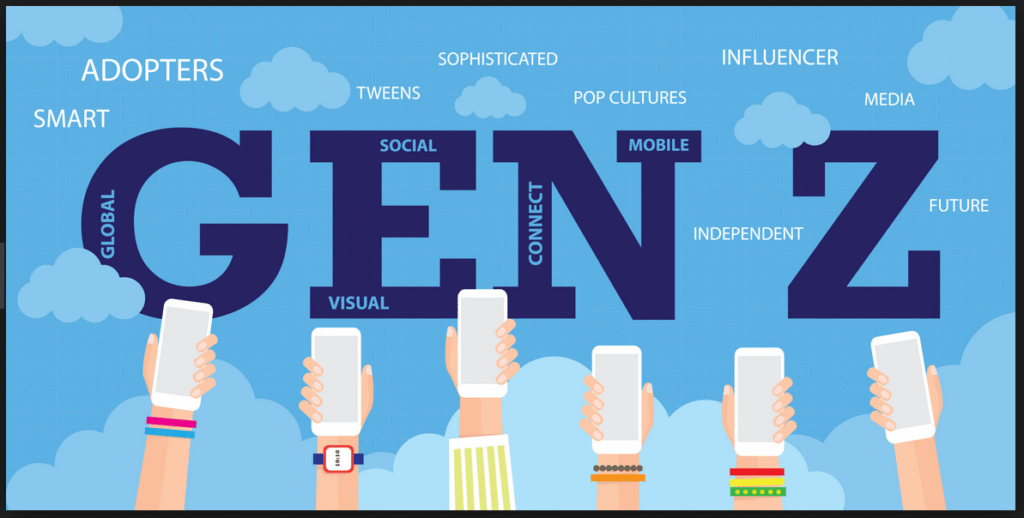Generation Z, often referred to as Gen Z, is the cohort born roughly between 1997 and 2012. As the first generation to grow up entirely in the digital age, Gen Z represents a fundamental shift in behavior, values, and cultural influence. Understanding the Gen Z years, their mindset, social dynamics, and impact on society is essential for educators, marketers, employers, and policymakers alike.
Defining the Gen Z Birth Years
The exact birth years that define Generation Z can vary slightly depending on the source, but the commonly accepted range is:
- Start Year: 1997
- End Year: 2012
This places Gen Z individuals currently between the ages of 12 and 28 in 2025. They succeed Millennials (1981–1996) and precede Generation Alpha (2013–present).
The Digital Natives: Technology and Gen Z
Gen Z is the first true generation of digital natives. Unlike Millennials, who witnessed the transition from analog to digital, Gen Z was born into a world of smartphones, social media, and high-speed internet. Their relationship with technology is deeply ingrained in their daily lives.
Key Digital Influences on Gen Z:
- Social Media Platforms: Instagram, TikTok, Snapchat, YouTube.
- Communication Style: Short-form, visual, meme-driven, and fast-paced.
- Information Access: Prefers video content, search engines, and social proof over traditional education or news sources.
- Multitasking: High comfort with managing multiple screens, apps, and streams of content simultaneously.
Cultural Identity and Social Values
Generation Z is known for its strong stance on social justice, inclusivity, and individual expression. Unlike previous generations, Gen Z tends to value authenticity over status, and purpose over profit.
Core Values of Gen Z:
- Diversity and Inclusion: A generation more likely to embrace different races, genders, and sexual orientations.
- Mental Health Awareness: Open about emotional wellness, therapy, and reducing stigma.
- Climate Change Action: Deeply concerned about environmental sustainability.
- Identity Fluidity: Acceptance of non-binary gender expressions and fluid identities.
This generation is less influenced by traditional authority and more inspired by grassroots movements, activist influencers, and peer-to-peer validation.
Education and Learning Preferences
Gen Z approaches education differently due to the influence of technology and an ever-changing job market.
Trends in Gen Z Learning:
- E-learning Enthusiasts: Prefers flexible, on-demand learning platforms like Coursera, Khan Academy, and YouTube.
- Practical Over Theoretical: Seeks out real-world application and hands-on experiences.
- Collaborative Learning: Leverages group chats, Discord communities, and online study groups.
- Short Attention Spans: Engages more with microlearning modules, gamified content, and bite-sized information.
Educators must adapt to more interactive, tech-enhanced teaching methods to effectively connect with this generation.
Workforce Integration: Gen Z in the Workplace
As of 2025, millions of Gen Zers have already entered the workforce, with many more to follow. Their approach to work is distinct and transformational.
Gen Z Workplace Expectations:
- Work-Life Balance: Prioritizes mental health and flexibility over rigid 9-to-5 schedules.
- Remote Work Savvy: Comfortable with digital tools like Zoom, Slack, and Trello for remote collaboration.
- Purpose-Driven Employment: Prefers companies with ethical practices, sustainability goals, and inclusive cultures.
- Entrepreneurial Spirit: Many explore freelancing, content creation, and startup ventures as viable career paths.
Organizations that embrace flexibility, continuous feedback, and diversity are more likely to retain Gen Z talent.
Consumer Behavior: How Gen Z Shops and Spends
Gen Z’s buying behavior is unlike any generation before them. Influenced by digital media, social proof, and ethical standards, they are savvy consumers with high expectations.
Shopping Traits of Gen Z:
- Mobile-First: Most purchases happen via smartphones.
- Influencer-Driven Decisions: Social media influencers hold significant sway over purchasing decisions.
- Brand Loyalty to Values: Supports brands aligned with their values on equality, sustainability, and transparency.
- Digital Wallets and Crypto: Comfortable using Apple Pay, Venmo, and even cryptocurrency for transactions.
Marketers must use authentic storytelling, interactive content, and cause-based campaigns to effectively reach this audience.
Entertainment Preferences of Gen Z
Traditional TV and radio have largely been replaced by on-demand, personalized content platforms for Gen Z. Entertainment consumption is constant, interactive, and often creator-led.
Top Platforms and Formats:
- YouTube and TikTok: Short-form video dominates.
- Twitch and Discord: Livestreaming and community engagement tools.
- Spotify and Podcasts: Personalized, on-the-go audio experiences.
- Gaming: Platforms like Roblox, Fortnite, and Minecraft double as social networks.
Brands and media outlets must rethink content delivery to engage Gen Z on their preferred platforms, with interactive storytelling and community involvement.

Social and Political Engagement
Gen Z is highly civically aware and politically active. From climate protests to online petitions, this generation uses digital tools to organize, advocate, and educate.
Activism Highlights:
- #BlackLivesMatter, #MeToo, #FridaysForFuture are key movements supported by Gen Z.
- Voting Participation: Higher youth turnout in elections than previous generations.
- Online Advocacy: Uses platforms like Twitter and TikTok for digital activism and education.
Social justice is not a trend for Gen Z — it’s a fundamental value woven into their identity.
Mental Health: A Gen Z Priority
No generation before has placed as much emphasis on mental health as Gen Z. They are actively reshaping how society discusses and manages emotional wellness.
Mental Health Trends in Gen Z:
- Openness: More likely to talk about depression, anxiety, and therapy.
- Apps and Tools: Uses Headspace, Calm, and teletherapy platforms for support.
- Workplace Expectations: Seeks employers who offer mental health days, counseling, and emotional well-being support.
Understanding and addressing Gen Z’s mental health needs is vital for schools, parents, and employers alike.
Comparing Gen Z to Millennials
While Gen Z and Millennials share some digital habits, they are distinct in worldview and behavior.
| Feature | Millennials (1981–1996) | Gen Z (1997–2012) |
|---|---|---|
| Tech Adoption | Transitioned into tech | Born into tech |
| Communication | Text and email | Video, memes, emojis |
| Career Goals | Stability | Flexibility and fulfillment |
| Social Attitudes | Progressive | Activist |
| Content Style | Long-form blogs, articles | Short-form, visual content |
The Future Shaped by Gen Z
As Gen Z continues to mature, their influence will only grow. They are redefining:
- Education with remote and hybrid learning models
- Employment through freelance economies and purpose-driven work
- Consumer culture with a focus on sustainability and transparency
- Politics with more youth engagement and representation
- Digital life with immersive experiences like the metaverse and AI-driven content
Organizations, institutions, and brands must adapt to Gen Z’s expectations or risk becoming irrelevant in the coming decade.


